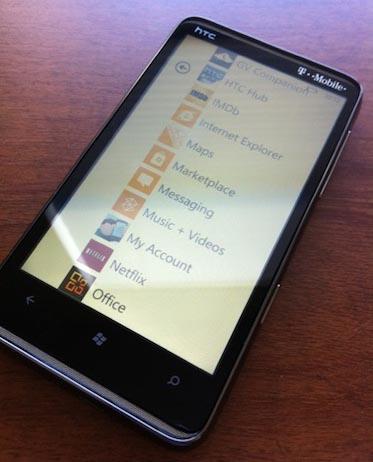
Our smartphones today are just as unique and essential to our lives as our computers. Indeed, our phones are keepers of our agendas, our many contacts, and a seemingly endless amount of messages between friends and relatives. They keep us connected, much like PCs did (and still do, of course) not too long ago. And while our smartphones are considered computers in our pockets, there are some major differences between our handheld devices and the laptops and desktops of the world. After a conversation I had over the weekend, I got to thinking: what if our smartphones became more like PCs in the near future? And not in technology, but I’m talking about premium purchases for the applications we find “standard” on any device.
Right now, applications are a great and ridiculously lucrative way for companies to keep making money even after the sale of a device. For Apple in particular, they get a pretty good piece of the pie every time an application is purchased through their App Store, whether it’s for the iPhone or iPad. The same can be said for Microsoft and HP. And while I don’t personally see the appeal of applications dwindling any time real soon, it will eventually. And that’s when it will be up to the phone manufacturers to find a new way to keep making money after that initial sale of any particular smartphone.
I have a Windows-based PC and my friend has a Mac. We were talking about how his device came pre-loaded with applications like Mail, and Garage Band and Photo Booth. He was tossing out other names, too, but the more applications that seemed so important, so awesome, to the operating system and user experience he named that came with the purchase of his MacBook Pro for free, I could only stare at my PC and ask: why didn’t I get that? And I don’t mean Garage Band or other Mac-only applications, but just that level of software right out of the box.
And then I looked at my phone, and I started wondering how Microsoft, Apple, Samsung, HTC, or any other phone manufacturer our there could capitalize on this. Let’s face it: Microsoft makes a killing by selling licenses of its popular Windows 7 Operating System, but then not including things like Microsoft Office, which includes applications like Word and Excel. That’s an extra cost. If you get a Windows Phone 7 device, though, those applications come stock right out of the box. It’s a great feature, even a selling point amongst the many others on the bullet point lists, but what if it wasn’t? What if it was an extra charge? Apple does this, with Pages and Numbers (a word document creator and spreadsheet tool) which are both available for the iPad and iPad 2.
What if, based on the particular mobile Operating System, companies started removing stock applications that we deem necessary right now, and began charging a premium for them? This couldn’t happen overnight or from just one company – it would have to be a global shift by all of the manufactures out there, and one that would have to be so complete that purchasers wouldn’t have a choice. Because I think if we had to pay more for a mail application on our phone, just to get the “stock” application, the majority wouldn’t do it. Then again, considering how many people buy applications now that replace stock apps on their phones, perhaps this way of micromanagement of smartphones is just a natural continuation of the market we’re seeing now.
What do you think? Would you be surprised if the smartphone market became more like the personal computer market? Or do you see something else entirely happening once application love dies down? Let me know in the comments below.